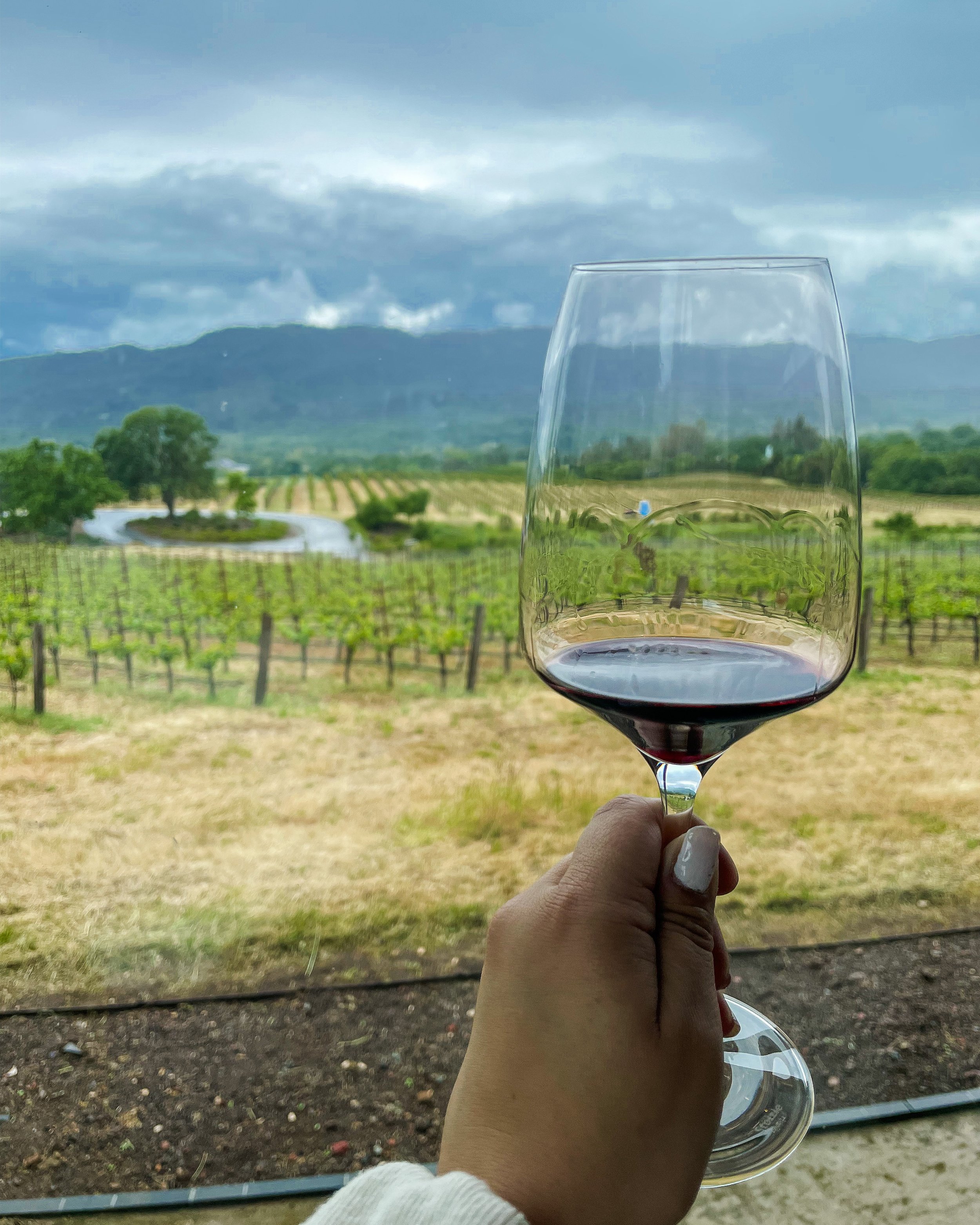
Frequently asked WINE questionS…
AND THE QUESTIONS I WISH MORE PEOPLE WOULD ASK!
are you a ‘sommelier’? also, what is a sommelier?
A sommelier a job title for a wine steward. They are likely a trained, wine professional working in a fine restaurant or hospitality industry and specialize in all aspects of wine service, as well as food and wine pairing. So, while I do have the same certifications that sommeliers receive, I do not work in a fine dining establishment pouring— I work directly for you. So, what do I call myself? A wine professional or a wine consultant is probably the most appropriate title for me.
What is a blind wine tasting?
A blind wine tasting is probably my favorite way to host a wine tasting, because it removes any biases you may have towards certain varietals, regions, or producers. It levels the playing field and really allows you to taste and think about why you enjoy certain aspects of certain wines. In this situation, I cover all bottles before pouring the wine flight. This can be done with a traditional mixed flight of white and red still wines or can be themed— all sparkling, Cabs from around the world, big brands vs hidden gems. Is that big name, expensive Napa Cab really your favorite wine in the world? Or, can I pour you something for half the price that will knock your socks off (and save you a whole lot of money)? When the bottles are covered all preconceived notions go out the window.
I’m new to wine. what sort of wines should i try?
All of them. I’m kidding— kind of. The only way to really know and understand what you like is to try things. You do not, I repeat, NOT need to spend a lot of money to drink quality wine. That honestly, is where I come in. The wine aisle can be so intimidating, but it doesn’t need to be! There are hidden gems that show “true varietal characteristics” that can help you learn the types of qualities you like in wine. Once you know what qualities you like, then it’s much easier to shop the wine aisle, and pick a bottle with a fair amount of confidence, because you will know what to expect inside.
Are Sulfites really giving me a wine hangover?
NO. Seriously, it’s not the Sulfites. Sulfites are naturally occurring in all wine, because of they are a product of fermentation. They are a chemical compound that stabilizes and preserves wine since it counteracts oxidation. Sulfites are also antimicrobial so they help prevent bacteria growth. Those all sound like good things, right? I don’t know why they got a bad wrap for causing headaches, but they likely aren’t the culprit. Wine tends to have a sulfite range from about 5 mg/L (5 parts per million [ppm]) to 200 mg/L (200 ppm). In fact, did you know there are actually more sulfites in much of the food we eat every day than in the wine? Cheese, bread, and dried fruit are just some examples of high sulfite foods (both natural or as an additive). A one ounce serving of dried apricots can have ten times the amount of sulfites as a glass of wine!! Do you get headaches after eating dried apricots? If so, then maybe you are one of the very few in the world with a sulfite intolerance (in which case, OMG, that stinks!), but otherwise, it likely isn’t the sulfites that are making your head hurt after drinking wine.
So, what is giving me a headache?
Now that I’ve dispelled the sulfite myth, I need to break your heart a little bit. I’m sorry. You see, as much as we all would like to believe that the only thing in that bottle of wine is grape juice and yeast, the fact is that winemakers can manipulate the wine in a number of ways and for a number for reasons. There is a rather long list of additives that can legally be added to wine (this can include sulfites, by the way). Some of these can be helpful during the winemaking process— such as to filter or fine the wine, while others are simply filler chemicals to boost or manipulate the flavor profile or structure of the wine. That’s likely where your headache stems from. Unfortunately, ingredient lists do not need to be put on a wine bottle which means that some mass-produced big brand wines can add fillers, additives, and chemicals to their wine (which, again, is completely legal) and not have to mention a thing on the label. It’s for this reason, that you need a friend like me. I can help you learn how to spot wines that likely have additives, and pick up quality wines from winemakers you can trust.
Also… it is alcohol. Drink water, folks.

